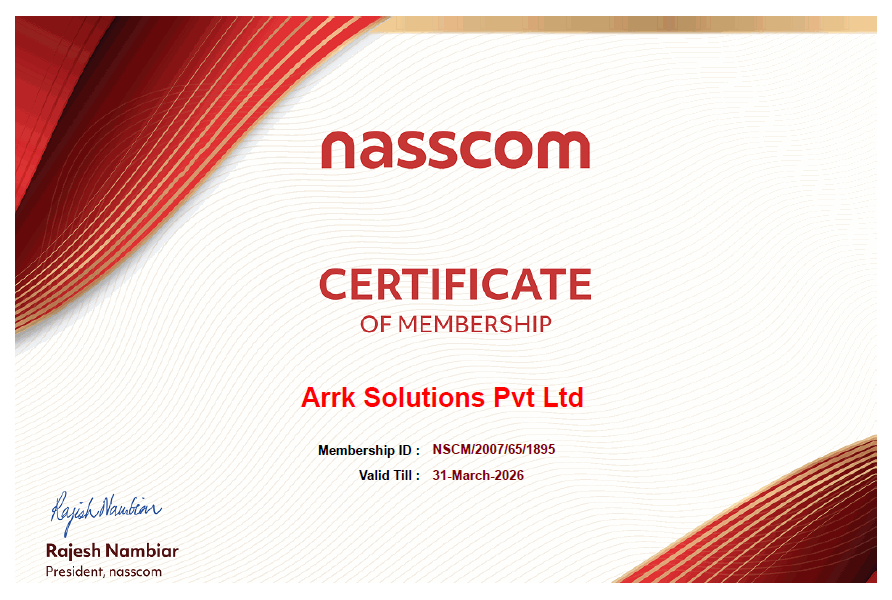Excuses, excuses, excuses - Is CRM really to blame?
By Team Arrk |
|
5 mins read |

Having recently talked to several companies about their CRM systems, I’ve been astonished by the amount of people who said that their CRM wasn’t helping them to do their job better – and some even admitted having to come up with ways to work around it. And the one element of commonality about all these discussions was, that in their opinion, the blame lay entirely with the system.
Working in marketing for more years than I care to remember, I have used several different CRM systems. And while some were better than others, I’ve always found that they improved the way the marketing team operated with the insight it gave us to what was working and what wasn’t, being invaluable. Which got me thinking – have I just been lucky or is there a recipe for CRM success?
Now, I am not a CRM expert as I stated earlier, but I have been an end user for many years. Having moved to my current employer, Arrk, just over 6 months ago (who among other things develop CRMs for companies), it’s only now that I’ve seen the power that a CRM can bring to the whole company – for example I didn’t know that CRMs such as Microsoft Dynamics have Case Management modules! And even though I was already an advocate, I have found out that I haven’t been using it to its full potential.
There are several blogs/articles out there about the benefits a CRM can bring to a company. So, I thought I would take a slightly different approach, and because of the war stories that are out there, address a few of the reasons that I’ve come across as to why companies are NOT looking to invest in a CRM.
Excuse 1 – ‘I have used a CRM before and it was rubbish’
A previous bad experience is probably the most quoted reason why CRMs are dismissed. This goes back to my initial observation, where the system was being blamed for poor performance and not how it had been configured and launched within the business. Yes, there are CRMs on the market that may not be fit for purpose, but many are. However, they are a piece of software and should not be expected to work straight out of the box. Implementing a CRM should be considered as introducing a customer centric strategy, not a software tool. It needs to be moulded around business processes and should be a cross-functional initiative, not just seen as a sales or marketing tool. If your business does not treat the CRM in this way, it is doomed to fail – but is that the system’s fault?
Excuse 2 – ‘We need results now and can’t wait for it to be implemented’
The decision to implement a CRM should be to improve your business and not a knee jerk reaction to under-performance. But in fact, the preparation you should undertake before you implement a CRM will have an instant positive impact on your business too. The fundamental principal of a CRM is that it should reflect your customer journey, and the business processes for each element of the journey should be established and replicated within the system. By reviewing your current ‘as is’ processes and challenging their validity with regards to delivering the optimum customer experience, you will identify how they can be improved and can then implement these changes straight away. As well as preventing individuals from doing their own thing, an effective business process also standardises best practice, which results in a consistent customer approach – giving an uplift in customer experience which will impact performance.
Excuse 3 – ‘The sales team won’t use it as they think it’s just there to manage their performance’
This could actually refer to any user as a lack of adoption is probably the main reason why CRM projects fail. People can be suspicious of technology and systems, resulting in a ‘big brother is watching us’ mentality. This could be because employees see it as a way for management to use CRM stats solely as a performance ‘metric’ (again not the system’s fault), but also because end users have not been involved in the project from the start and the system has been delivered to them with minimal training and support. The focus then becomes what the system does and not why the system was introduced. If you take sales as an example, the CRM should enable individuals to be much more effective with elements such as lead scoring and next steps prompts supporting the sales process and increasing conversion rates. Gaining an understanding of what types of leads convert the best also opens conversations with marketing colleagues, as you start to work more closely together in refining your target audience. Including influential people in the project team that get to see the bigger picture and have some input into the design structure, will often prompt them to champion the CRM within their own team and help drive adoption across their peer group.
Excuse 4 – ‘We have people all around the country and out on the road, so it won’t get updated’
This is actually one of the major benefits of having a centralised CRM system, as it’s accessible through whatever device a user wants to use e.g. a desktop, laptop, mobile etc. Not having everyone under one roof is often the excuse given as to why multiple different systems, spreadsheets, scraps of paper etc are used to store customer data. This results in a load of duplication and customers complaining that people in the company don’t know what each other is doing. Worse of all it runs the risk of a sales person leaving and other team members not knowing what leads they were working on, where an opportunity is up to, or even who they were speaking to! People can now sit in their car, on a train, at home or in an office and have real-time access to every individual customer interaction and update the information there and then. Emails can be automatically synced against contacts and workflows can be introduced that alert people in multiple departments based on the outcome of meeting/call etc. Managed effectively, CRMs bring people together regardless of where they are on a daily basis, which can only be a good thing.
I am not trying to belittle the investment a company needs to make (both financially and resource wise) to deliver a successful CRM strategy, quite the contrary! I believe that like a dog, a CRM is for life and not just for Christmas. However, I have experienced first hand the benefits a CRM can deliver and am now aware that there is far more potential still to unlock. It would be great to hear your own experiences, the good, the bad and the ugly, and if you are interested, we have a free online CRM maturity assessment and other CRM related insights on our website that you may find interesting.
Richard Leech
Head of Marketing









